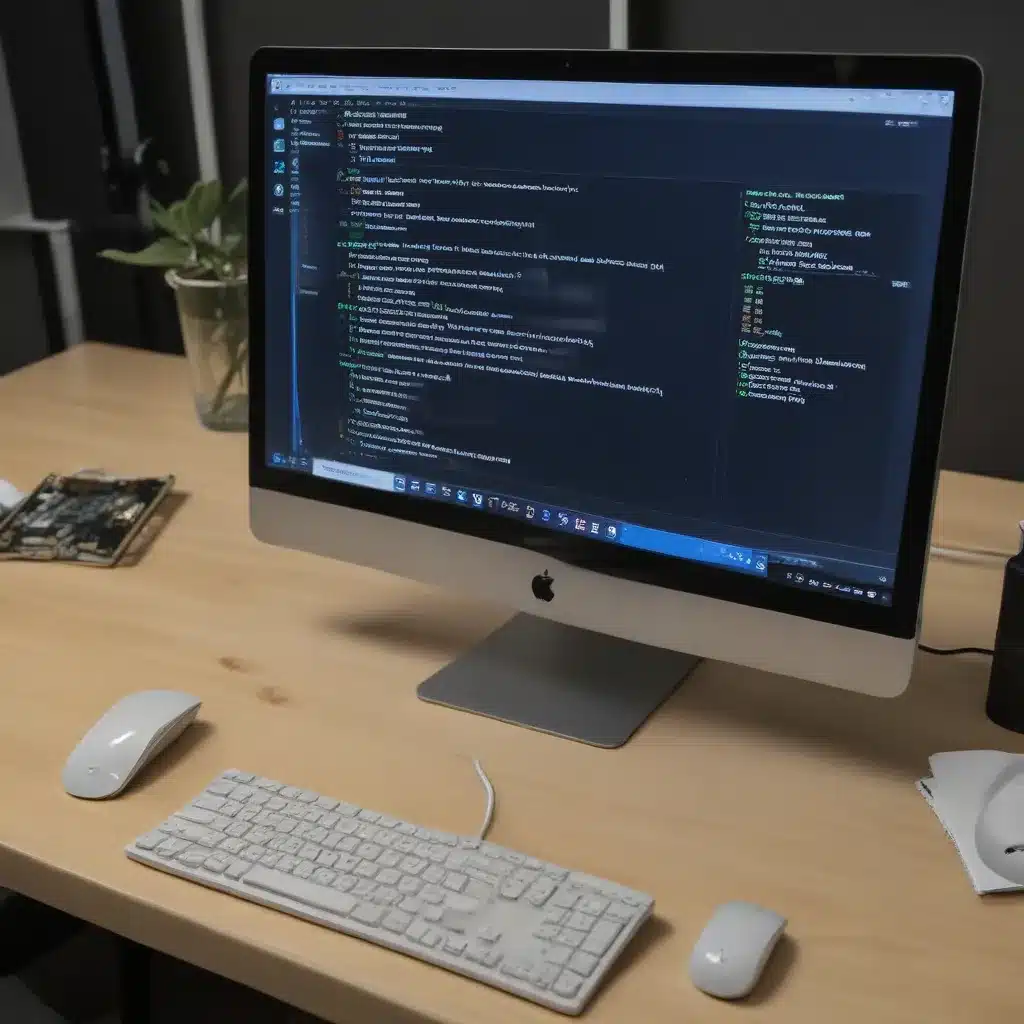
Computers and Their Quirks
As a lifelong Windows user, I’ve had my fair share of run-ins with the occasional computer quirk. You know the ones – those moments when your trusty machine decides to take an impromptu coffee break in the middle of an important project or video call. It’s enough to make even the calmest of us start tearing our hair out.
One of the most frustrating issues I’ve encountered is the dreaded “random restart” – that maddening phenomenon where your computer just decides to reboot itself without warning. It’s like having a moody teenager in the house, constantly keeping you on your toes. And let me tell you, it’s not a fun experience, especially when you’re in the middle of something crucial.
Investigating the Causes
Now, I don’t know about you, but whenever my computer pulls one of these surprise reboots, I instantly go into investigative mode. What on earth could be causing this? Is it a hardware issue? A software problem? Or is my computer just staging a coordinated uprising against me? (Okay, maybe that last one is a bit far-fetched, but you get the idea.)
After scouring the internet for answers, I’ve come across a few potential culprits that could be responsible for your computer’s sudden urge to take a break. Let’s dive in, shall we?
Overheating and Cooling Issues
One of the most common causes of random reboots is good old-fashioned overheating. Think about it – your computer is essentially a little powerhouse, cramming all sorts of components into a confined space. And when those components start to work overtime, they generate a lot of heat. If your computer’s cooling system can’t keep up, it’s going to start throwing in the towel, triggering an emergency restart to prevent any serious damage.
According to the Microsoft community forum, outdated or faulty cooling fans, clogged air vents, and inadequate airflow can all contribute to this issue. So, if your computer’s been feeling a little too toasty lately, it might be time to give it a quick checkup and make sure everything’s running at an optimal temperature.
Software Conflicts and Crashes
But the culprit behind your random reboots could also be a bit more, well, software-related. As the folks on the Tom’s Hardware forum pointed out, conflicts between different programs, drivers, or even the operating system itself can lead to unexpected shutdowns and restarts.
Imagine your computer as a delicate orchestra, with each component playing its own unique role. When one instrument starts going off-key, it can throw the entire performance into chaos. The same thing can happen with your software – if two programs just can’t seem to get along, or a driver is causing some sort of instability, your computer might decide to take a breather and reboot itself to try and sort things out.
Power Supply Issues
But wait, there’s more! Another potential culprit behind those random reboots could be a problem with your computer’s power supply. According to EaseUS, a faulty or overloaded power supply unit (PSU) can cause your computer to randomly shut down and restart.
Imagine your computer as a hungry beast, constantly demanding more and more power to keep all its components running. If the power supply can’t keep up with the demand, it’s going to start sputtering and struggling, leading to those unexpected restarts. And let’s not forget about power surges or brownouts – those can also wreak havoc on your computer’s delicate power balance.
Tackling the Random Restart
So, what can you do to tame this random restart beast and keep your computer running smoothly? Well, my friend, the solution might just lie in a bit of detective work. Start by checking your computer’s cooling system – make sure the fans are working properly, the air vents are clear, and the overall airflow is good.
If that doesn’t do the trick, dig a little deeper into your software and drivers. Try updating or reinstalling any problem programs or drivers, and see if that helps stabilize things. And don’t forget to run a few scans for any potential malware or other system conflicts that could be causing issues.
Finally, if all else fails, it might be time to take a closer look at your power supply. Consider investing in a new, high-quality PSU that can handle the demands of your computer. And be mindful of any power fluctuations in your home or office that could be causing problems.
Remember, IT Fix is always here to lend a hand if you need a professional to help diagnose and fix those pesky random restarts. Don’t let your computer’s moody behavior get the best of you – with a little troubleshooting and the right support, you can get that machine back on track and running like a well-oiled machine.












